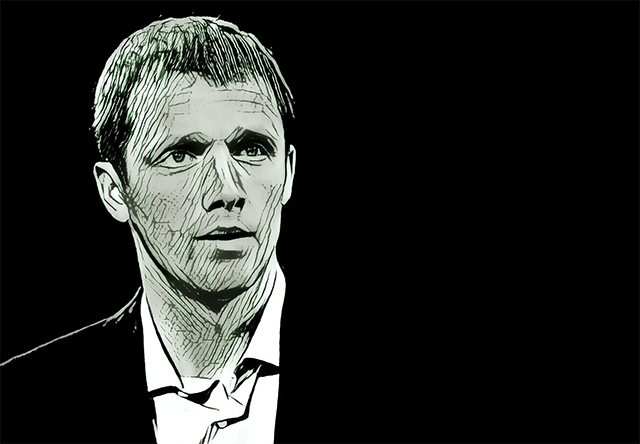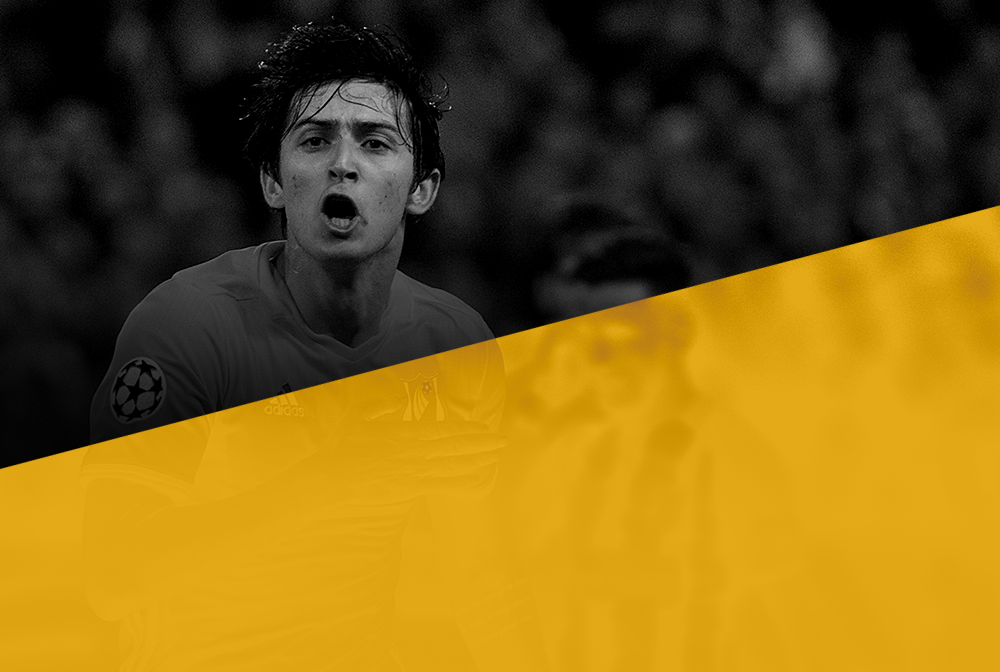After years of over-spending, Dynamo Moscow have adopted a more settled strategy and are looking to rise once more in the Russian Premier League. Andy Woods tells their story.
As the characteristic cold air engulfs the stadium and snow relentlessly falls onto the names on the back of shirts, the hazardous weather continuously threatens to disrupt the natural flow of a game. The severity of the climate change is a stark reality check for those who bravely attempt to forge out a footballing career in the unforgiving terrain of Eastern Europe. The difficulties involved in adapting to this harsh footballing environment pertain to more than just the extremities of the weather conditions. Political imbalances and power struggles have long been associated with sport in this corner of the earth. Despite these negative perceptions the potential ceiling is relatively high.

The Russian Premier League is one of the less glamorous leagues on the continent, but the level of football is undeniably competitive. The incredibly youthful league (founded in 2001) has made strides in recent years – aiding to it’s growing reputation. Unfortunately the development hasn’t been a particularly painless one. Conflicting philosophies have given life to a few teething problems among the elite. These extenuating underlying issues have sadly exasperated causing a manifestation of the situation.
This has led to progress being stalled somewhat by an identity crisis among various of the country’s leading clubs. With some of the teams aiming to adopt a more feasible financial approach instead of the excessive spending on lucrative deals that have dominated the landscape since the league’s inception. The lavish spending of the past has lead to concerns about domestic long-term health and maintenance, and the wage inflation in particular has had a damaging effect on morale. Various home-grown players have expressed their displeasure with the influx of foreign talent. Exotic imports have proven to be more appealing than the national set-up’s production of industrious players.
Situated northwest of the capital Moscow, in the city of Khimki is the home of Belo-golubye. More commonly known as FC Dynamo Moscow; arguably one of the most intriguing sides in Russian football. The arena pales in comparison to the capacity of some of Europe’s more illustrious stadiums. The club is owned by one of the country’s leading banks VTB and is chaired by the Forbes listed Boris Rotenberg Sr, who has been friends with president Vladimir Putin since the 1960’s. Over the last few years the team has assembled a talented squad, but has struggled domestically – finishing in the top four only three times since 2001. After the opening 4 games of the 2014 Russian Premier league the team sit in 3rd, with three wins and one loss.
Earlier this month the club signed France international Mathieu Valbuena from Marseille for a fee believed to be in the region of £6 million. This came after the successful acquisitions of Standard Liege’s William Vainqueur and Manchester United left back Alexandre Buttner. These additions have been heralded as a statement of intent and have shown tremendous ambition from the side who finished 4th last season. There has been an emphasis in the last few seasons on improving the spine of the squad, with Christopher Samba, Igor Denisov and Kevin Kuranyi all contributing to this driven policy. Dynamo Moscow aren’t unfamiliar with some of the more recognised names in world football. During the mid-2000’s they splashed €39.5 million on Porto’s Maniche, Costinha, Giourkas Seitaridis, Derlei and Thiago Silva. The latter who was signed for €2.5 million endured a traumatic and testing time in Russia. The Paris-St Germain centre-back was faced with some heartbreaking news when doctors at the club diagnosed him with tuberculosis. They told a distraught Silva that if he’d have been left undiagnosed for another two weeks the disease could have claimed his life.
This aggressive transfer strategy was noted by the competition throughout Europe; however the radical and audacious plan didn’t have a smooth transition to the pitch. This predictably led to an increase in pressure after the highly publicised arrivals, but despite the optimism, the 2006 season was a disastrous year and one of underwhelming underachievement. Come the end of the campaign Belo-golubye languished in 14th place- a position unfathomable to the fans before the season had began. The crowning of cross-city rivals CSKA as champions only rubbed salt in the wound. The difference in fortunes between the clubs was worrying in contrast and led to anguish.
Stanislav Cherchesov was appointed as the new manager of the team in April 2014 replacing Dan Petrescu. The Romanian had agreed to a mutual termination of his contract after a 4-0 loss was inflicted by Anzhi Makhachkala. The experience of Cherchesov could be what is needed to finally steady the ship and compete with the likes of Zenit Saint Petersburg, CSKA Moscow and Lokomotiv Moscow. The process will be a time consuming project, but the goal is for Dynamo to become a regular competitive force in Russia once again.
The evolution of football in the Eastern European region has seen a move away from the extravagance of past times and shifted towards a more balanced and stable approach. The powerhouse of Russian football – Zenit won’t disregard their financial might just yet, but the Premier League is evolving.
Written by Andy Woods.
- Scout Report | Paco Alcacer: Valencia’s exciting young striker - June 9, 2015
- Russian football column: Zenit’s obvious tactics, Musa continues to impress & more - October 25, 2014
- Dynamo Moscow looking to rise again in the Russian Premier League - August 29, 2014























































